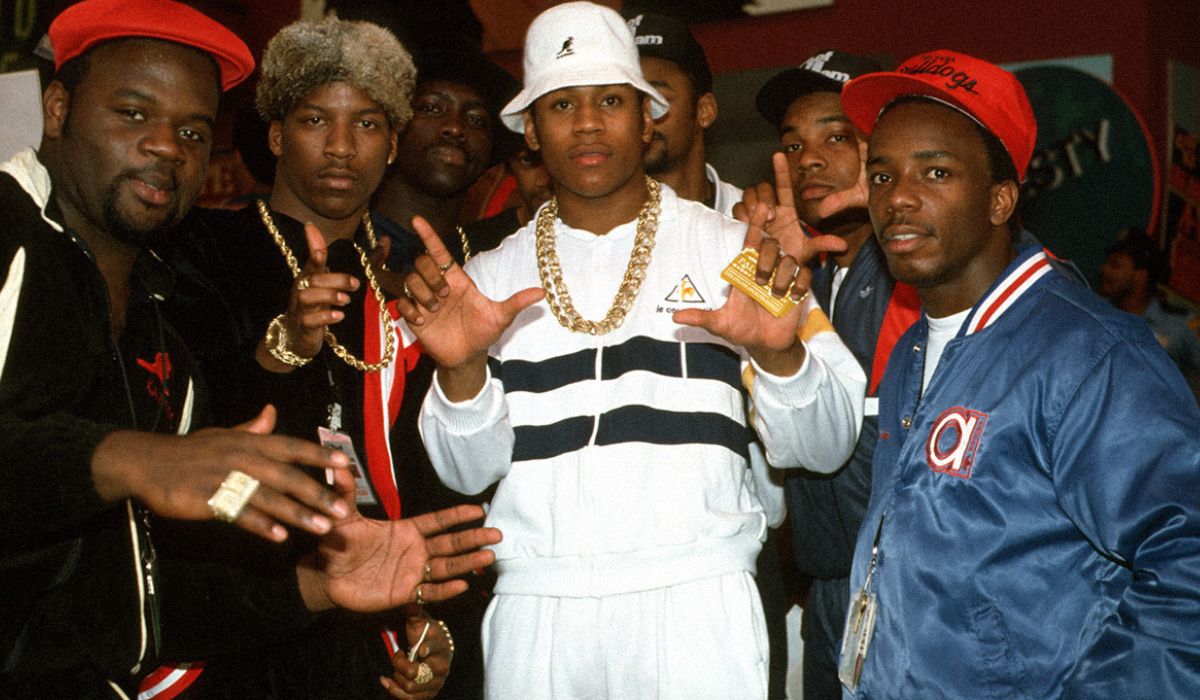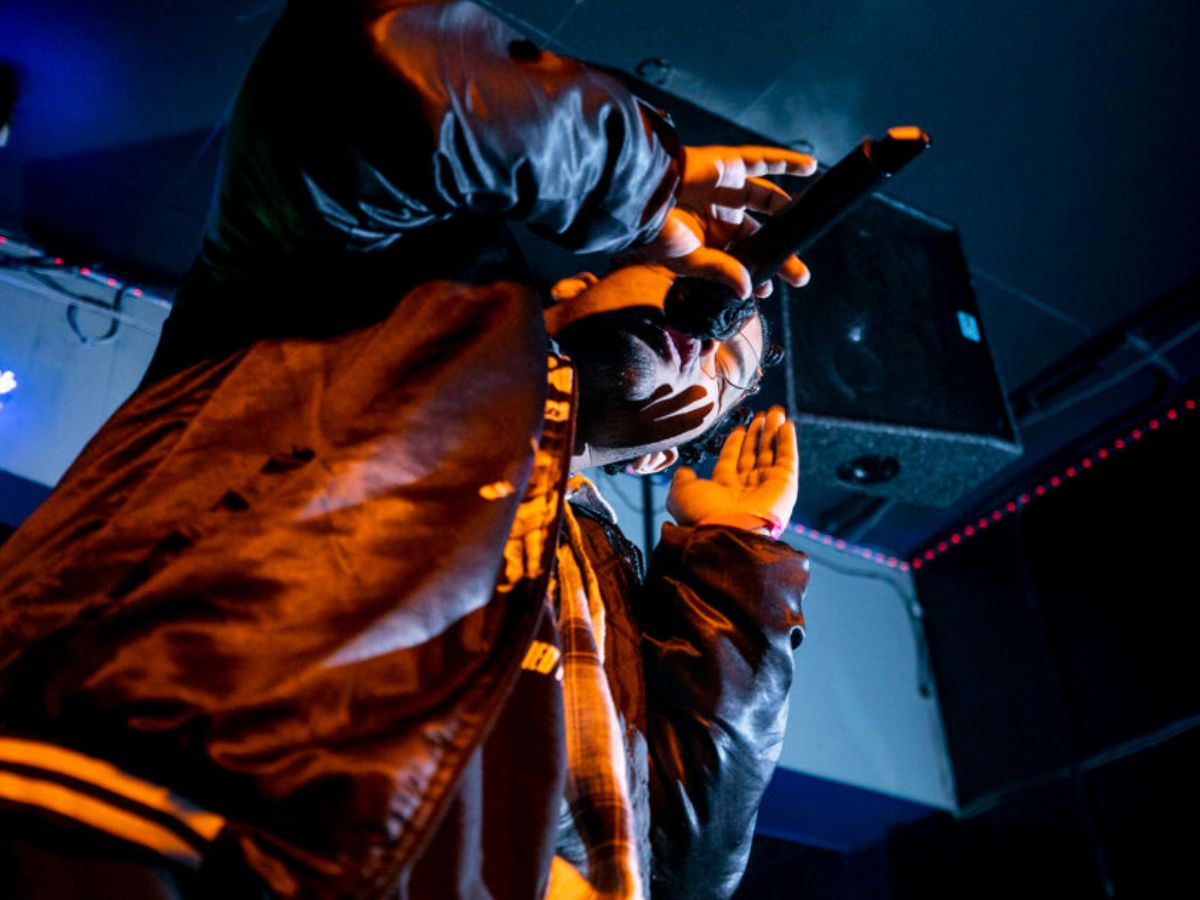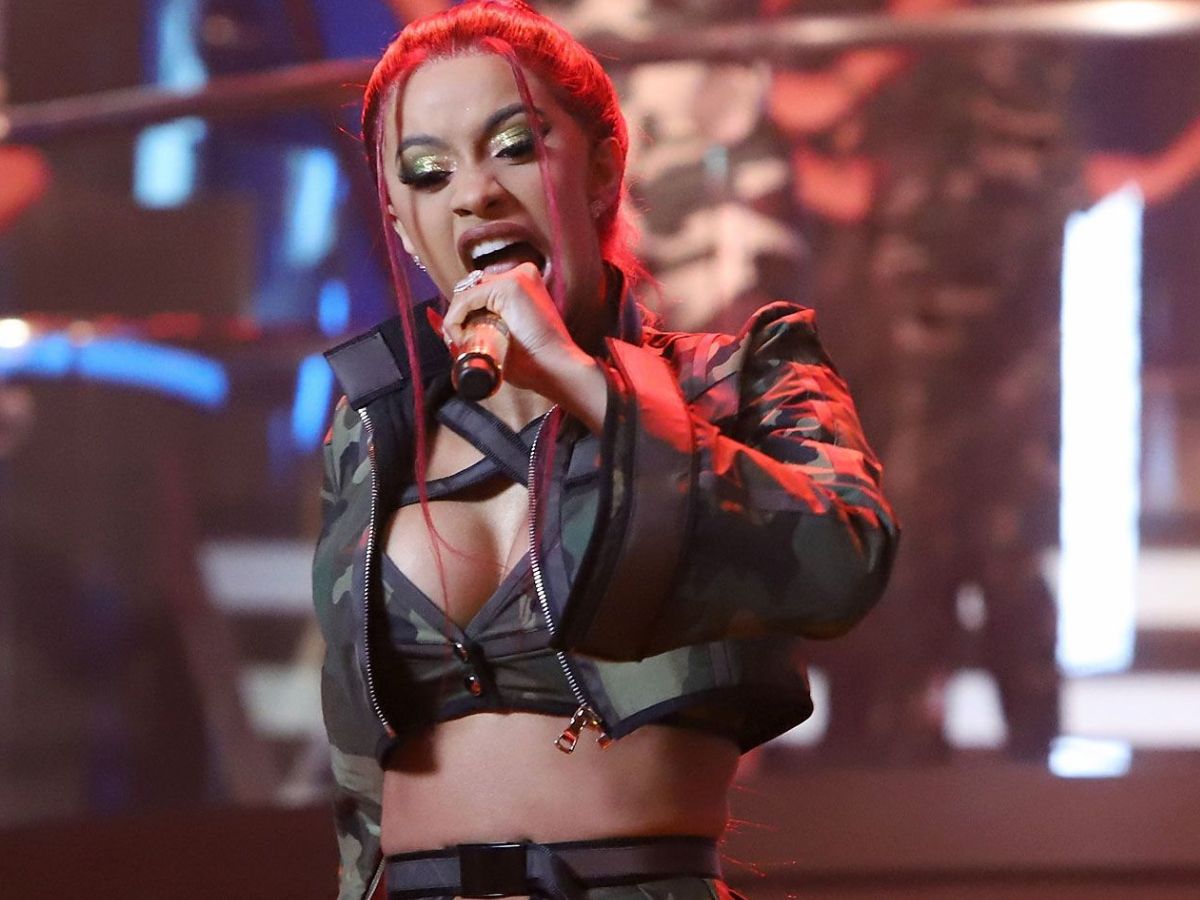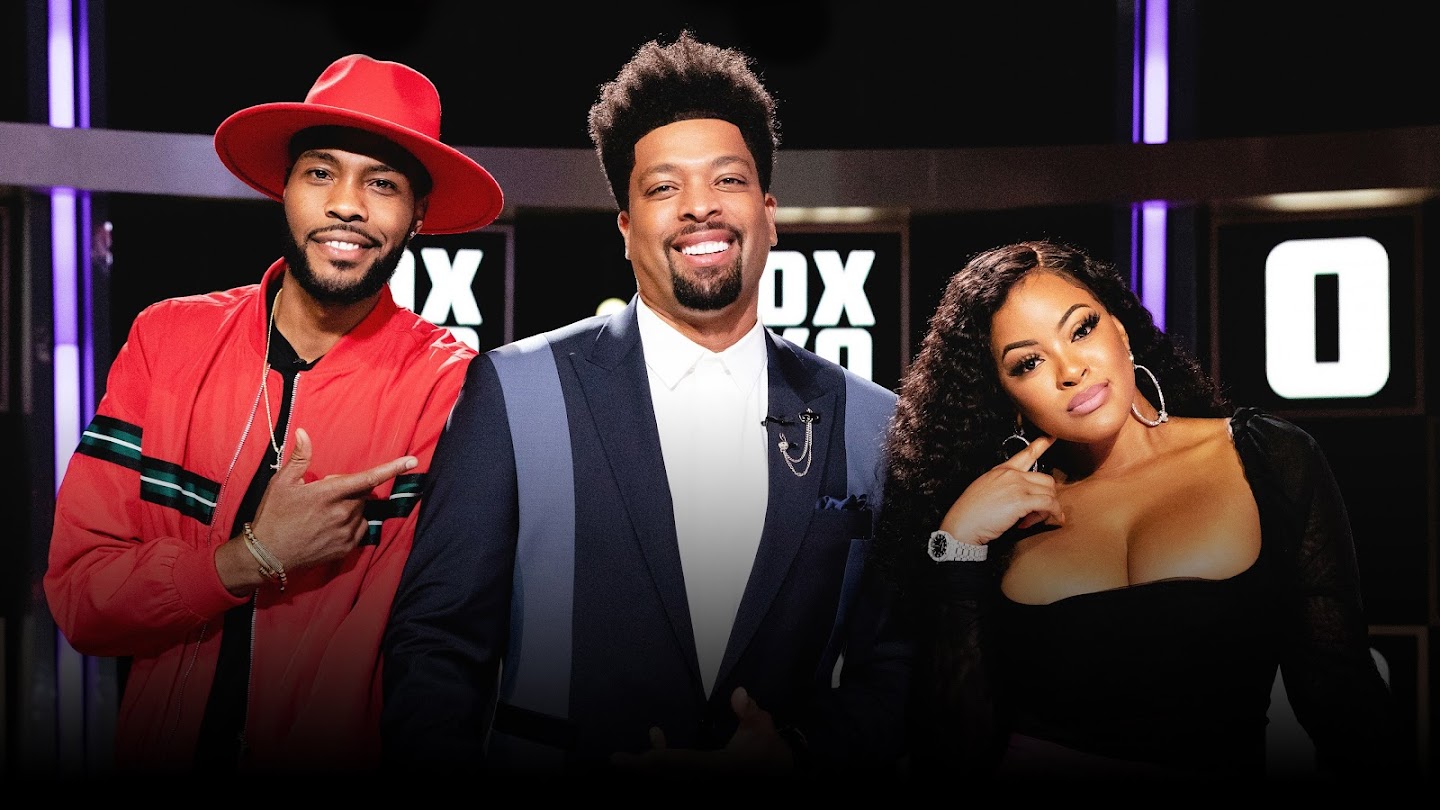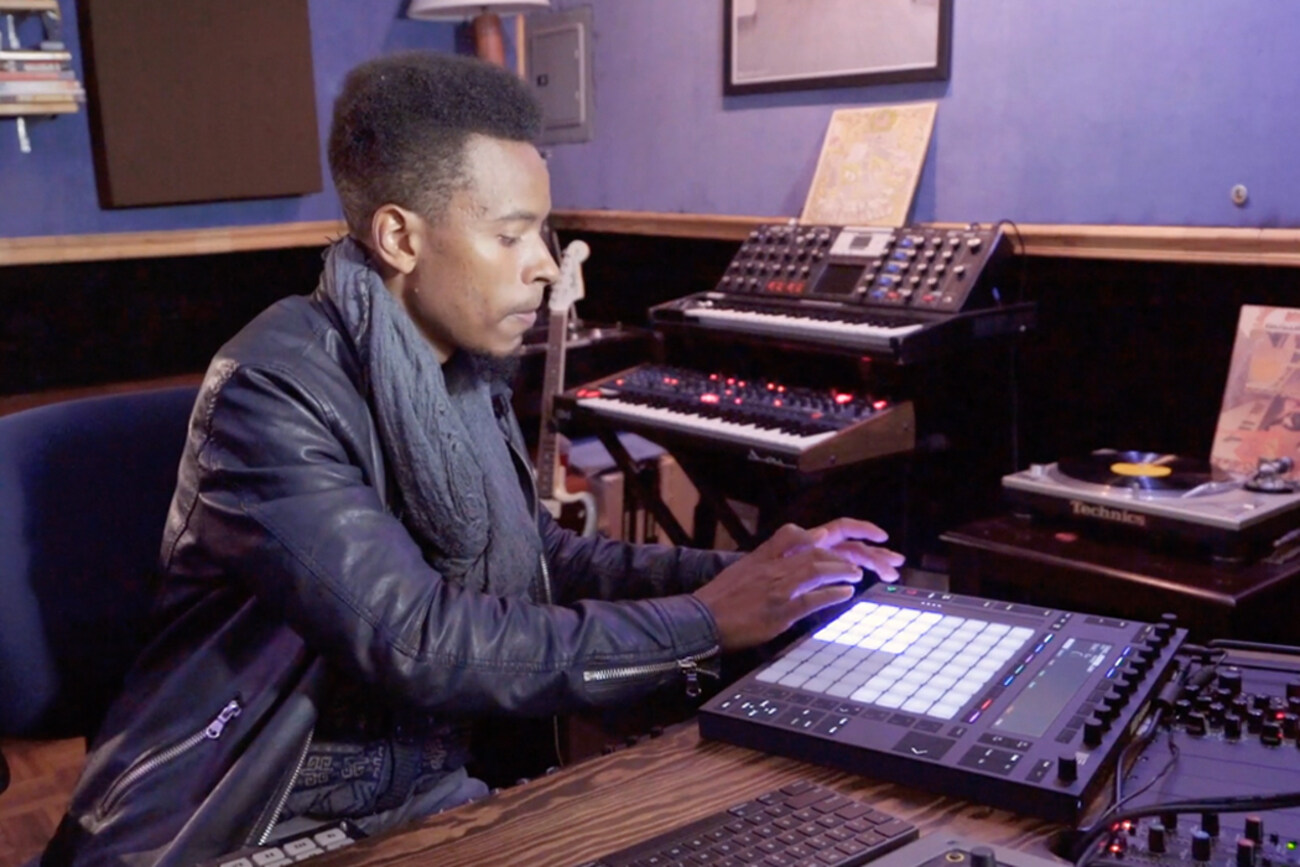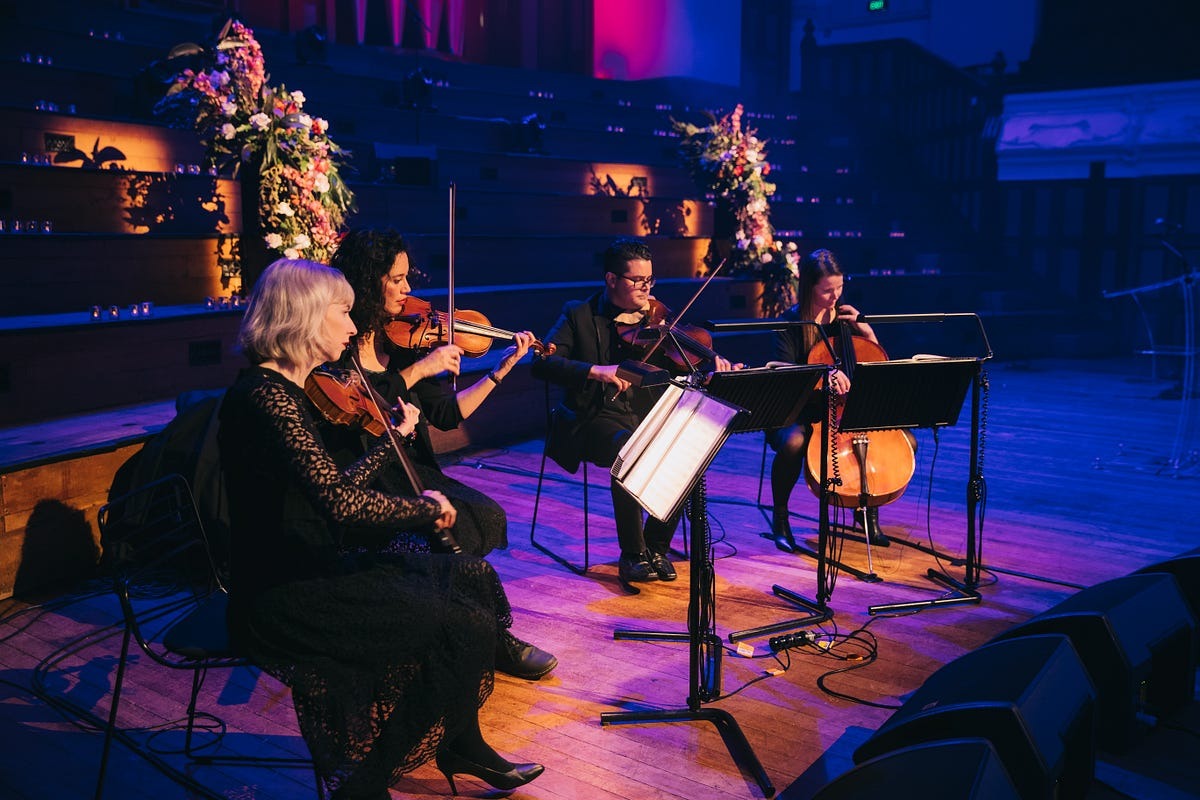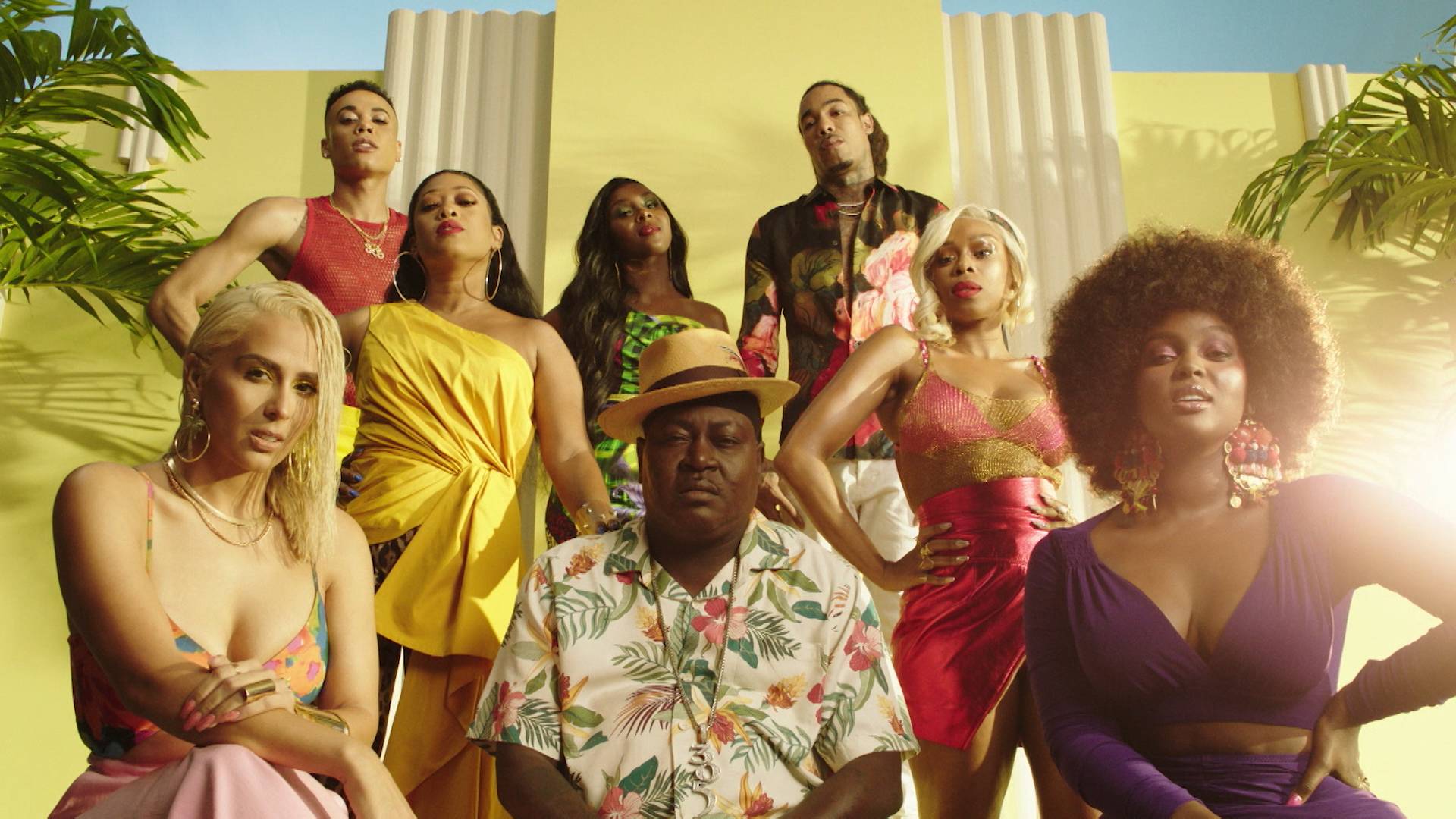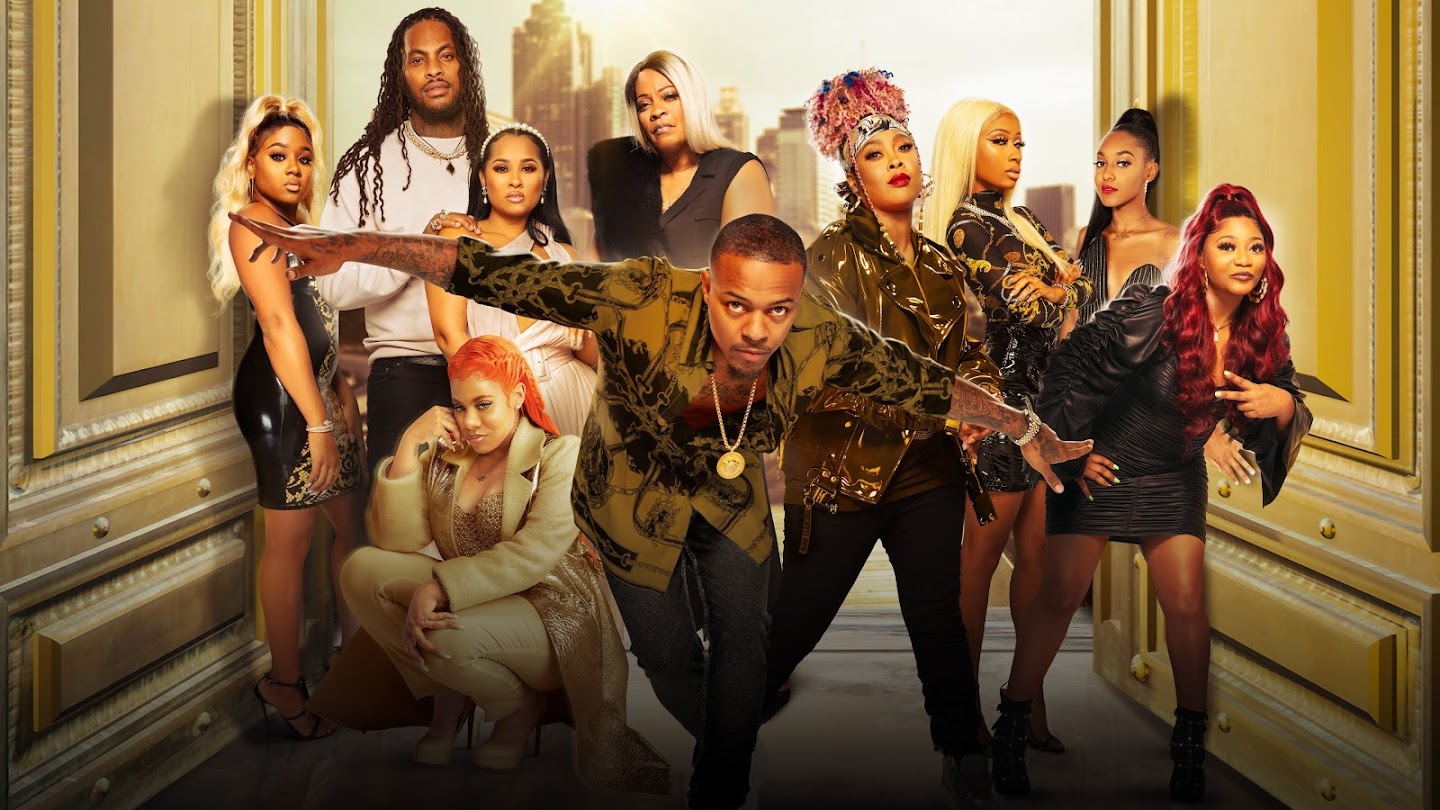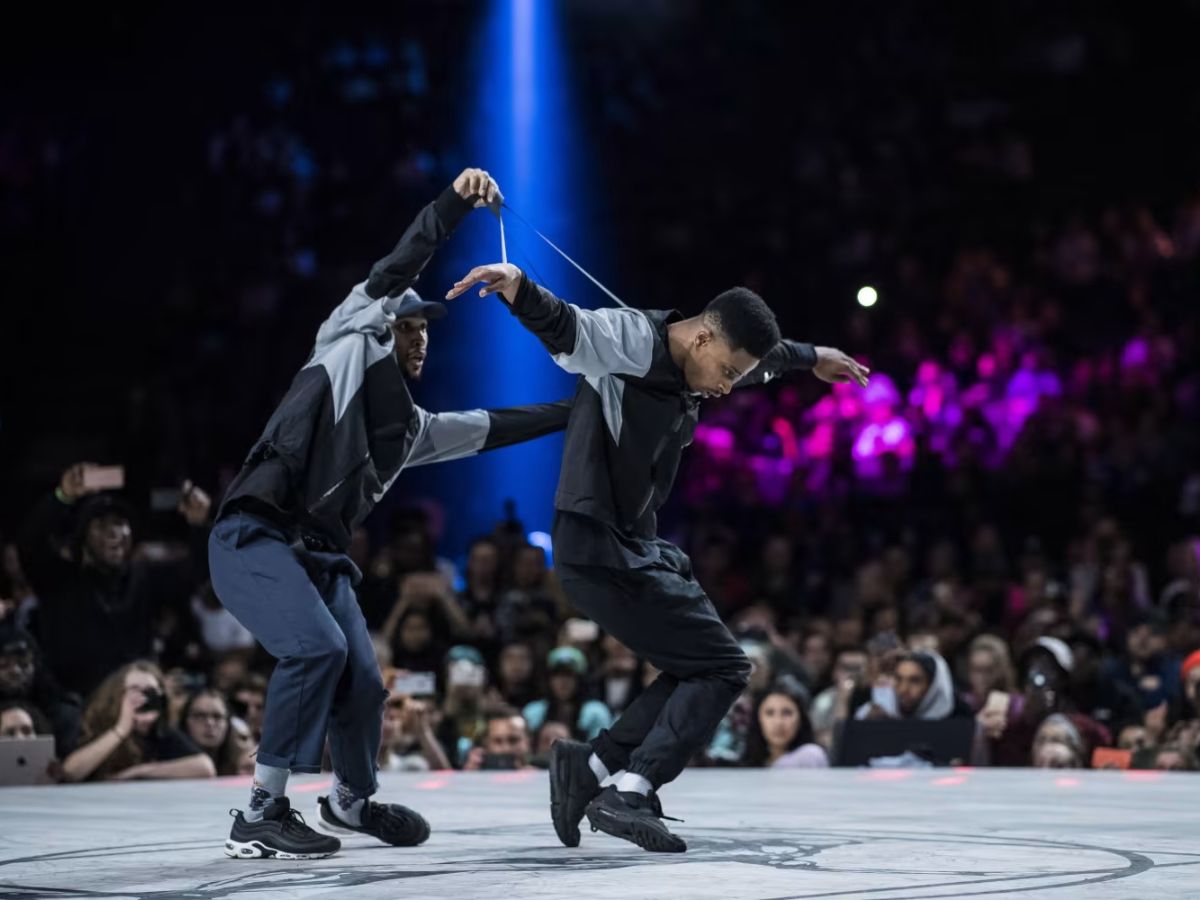

Hip Hop
Where Is Hip Hop Usually Performed
Modified: March 3, 2024
Discover the most popular venues where hip hop artists showcase their skills and entertain audiences. From underground clubs to concert halls, find out where hip hop usually takes center stage.
(Many of the links in this article redirect to a specific reviewed product. Your purchase of these products through affiliate links helps to generate commission for AudioLover.com, at no extra cost. Learn more)
Table of Contents
Introduction
Hip Hop, a genre born out of the streets and rooted in African American culture, has become a global phenomenon. Its infectious beats, lyrical prowess, and rhythmical poetry have captivated audiences for decades. But where exactly is this vibrant genre usually performed? From its humble beginnings in the Bronx in the 1970s to today’s international stages, Hip Hop has found a home in a variety of venues.
In this article, we will explore the different settings where Hip Hop performances take place. From the iconic concert venues to the intimate nightclubs and bars, from the energy-filled music festivals to the community centers and parks, Hip Hop has the ability to adapt and thrive in diverse locations. Additionally, we will delve into how the genre has evolved to embrace newer platforms like online streaming services and televised award shows.
Whether you’re a dedicated Hip Hop fan or just curious about the culture, join us as we journey through the many stages of Hip Hop and discover the spaces where it comes alive.
Concert Venues
When it comes to experiencing the full power of a live Hip Hop performance, concert venues are the ultimate destination. These venues are specifically designed to host large-scale shows, bringing together thousands of fans to witness their favorite artists in action.
From iconic arenas such as Madison Square Garden in New York City to Staples Center in Los Angeles, concert venues offer state-of-the-art sound systems and impressive stage setups. They provide an immersive experience where fans can feel the energy of the music reverberating through their bodies.
Concert venues provide the perfect platform for Hip Hop artists to showcase their stage presence and engage with the audience. Rappers command the stage with their high-energy performances, accompanied by a live band or DJ. The crowd becomes an integral part of the experience, chanting along with the artist and creating an electric atmosphere.
These venues also play host to some of the most unforgettable moments in Hip Hop history. From historic performances like Jay-Z’s “Fade to Black” concert at Madison Square Garden to Kendrick Lamar’s electrifying show at Coachella, concert venues provide the space for artists to make their mark and leave a lasting impact on their fans.
While major cities are known for their renowned concert venues, Hip Hop artists also make their way to smaller venues, bringing an intimate and immersive experience to their fans. These smaller venues may not have the capacity of arenas, but they offer a more up-close and personal encounter with the artists and their music.
Whether it’s a massive arena or an intimate club, concert venues serve as the epicenter of Hip Hop performances, where artists can truly shine and fans can revel in the live experience.
Nightclubs and Bars
When the sun goes down and the city comes alive, nightclubs and bars become the pulsating heart of the Hip Hop scene. These intimate venues provide the perfect backdrop for fans to get up close and personal with their favorite artists and DJs.
In cities around the world, dedicated Hip Hop nights take place at various nightclubs and bars. These events draw in a diverse crowd of music enthusiasts and offer an immersive experience into the world of Hip Hop. From classic tracks to the latest releases, DJs spin the beats while MCs take the mic, delivering fiery rhymes that keep the dance floor moving.
Nightclubs and bars provide a more intimate setting, allowing fans to connect with the music and the performers on a personal level. The energy is palpable as people move and groove to the rhythmic beats, embracing the essence of Hip Hop culture.
These venues also serve as a breeding ground for emerging talent. Up-and-coming artists often perform at smaller nightclubs and bars, honing their skills and building a dedicated fan base. It’s not uncommon to witness incredible freestyle battles or impromptu performances that showcase the raw talent within the Hip Hop community.
Additionally, nightclubs and bars have become important spaces for networking and collaboration within the industry. Producers, managers, and artists often frequent these venues, providing opportunities for connections and partnerships to flourish.
It is worth noting that the atmosphere and vibe of nightclubs and bars can vary greatly. Some venues focus solely on Hip Hop, while others incorporate it into a mix of different genres. Regardless, these spaces allow Hip Hop enthusiasts to immerse themselves in the culture and experience the music in an intimate and vibrant setting.
Music Festivals
Music festivals are a highlight of the summer season, and they hold a special place in the world of Hip Hop. These outdoor gatherings bring together a diverse range of artists and fans, creating an electric atmosphere of music, energy, and community.
Hip Hop has become a staple genre at music festivals around the world. From Coachella in California to Glastonbury in the UK, these events feature both established superstars and rising talents across the Hip Hop spectrum. Festival stages become platforms for legends like Jay-Z and Nas to showcase their lyrical prowess, while also providing a space for emerging artists to gain exposure.
What sets music festivals apart is the sheer magnitude of the event. Large-scale stages, immersive light displays, and massive crowds create an unparalleled experience. Fans from different walks of life come together, united by their love of Hip Hop and a shared desire to celebrate the culture.
Music festivals also provide a unique opportunity for collaboration between artists. Impromptu guest appearances, surprise performances, and unexpected collaborations often take place on festival stages, thrilling fans and creating unforgettable moments. It’s not uncommon to witness iconic partnerships like Kendrick Lamar joining forces with SZA or Cardi B surprising the crowd during a set.
In addition to the live performances, music festivals often offer other attractions, such as art installations, food vendors, and interactive experiences. Hip Hop culture is not just about the music, but also about the visual art, fashion, and culinary aspects that contribute to its rich tapestry. Music festivals provide a space for these elements to thrive alongside the performances.
Attending a Hip Hop music festival is more than just a concert experience – it’s a community gathering that celebrates the diversity and creativity that the genre embodies. From the vibrant energy of the crowd to the powerful lyrics echoing through the air, music festivals create an immersive experience that leaves a lasting impression on all who attend.
Community Centers and Parks
Beyond the glitz and glamour of concert venues and music festivals, Hip Hop finds its roots in community centers and parks. These spaces serve as platforms for artists to connect with their communities on a more personal and grassroots level.
Community centers play a vital role in fostering the Hip Hop culture within local neighborhoods. They often host open mic nights, workshops, and performances, providing a safe and inclusive space for aspiring artists to showcase their talents. These events not only give artists a chance to gain exposure but also serve as a hub for creativity and collaboration.
Parks also play a significant role in shaping the Hip Hop scene. From impromptu cyphers to organized outdoor concerts, parks serve as gathering places for artists, fans, and enthusiasts of the genre. The open-air environment allows for a lively and energetic atmosphere where creativity and expression can flourish.
These community-centered events offer a more intimate and accessible experience for both artists and fans. The connection between performers and the audience becomes more direct, creating a sense of unity and shared expression. It’s not uncommon to see local talents performing alongside established artists, as these events provide a platform for emerging artists to gain recognition within their own communities.
Moreover, community centers and parks often prioritize creating a positive impact on their neighborhoods. They promote cultural exchange, diversity, and youth development through Hip Hop programs and initiatives. By embracing the core values of Hip Hop, these spaces become catalysts for social change and empowerment.
Whether it’s a park filled with graffiti murals and breakdancing battles or a community center hosting workshops and performances, these spaces play an essential role in nurturing and preserving the essence of Hip Hop at a grassroots level.
Colleges and Universities
Colleges and universities have become hotspots for Hip Hop culture and its expression. These academic institutions provide a space for both education and artistic exploration, allowing students to delve deeper into the history, theory, and practice of the genre.
Many colleges and universities offer courses and programs that focus on Hip Hop studies. These programs go beyond just the music and examine the cultural, social, and political significance of Hip Hop. From analyzing the lyrics and storytelling techniques to studying the impact on marginalized communities, these courses provide a comprehensive understanding of the genre’s influence and evolution.
Aside from academic offerings, colleges and universities often host Hip Hop events and performances. These can include guest lectures, panel discussions, and live showcases featuring local and national acts. These events provide a platform for students to engage with the culture, showcase their own talents, and gain exposure in the industry.
In addition, college campuses have become breeding grounds for talented Hip Hop artists. Students who are passionate about music and performance often form rap groups, DJ collectives, or dance crews, utilizing the campus as a platform to develop their skills and build a fan base.
Colleges and universities also provide opportunities for students to connect and network with industry professionals and artists. Guest speakers, workshops, and talent showcases are common features of these institutions, offering a gateway for aspiring artists to make connections and get their foot in the door of the music industry.
Overall, colleges and universities play a significant role in celebrating and fostering the Hip Hop culture. By offering educational programs, organizing events, and supporting student talent, these institutions contribute to the growth and development of Hip Hop as an art form and a valuable field of study.
Street Performances
Street performances have long been a crucial element of Hip Hop culture, allowing artists to connect with audiences in unexpected and unfiltered ways. From freestyle rap battles to breakdancing showcases, street performances capture the raw essence of the genre and bring it to the public square.
The streets serve as an organic and vibrant stage for Hip Hop artists to showcase their skills and express their creativity. Whether it’s on a busy street corner, in a subway station, or at a local park, street performances draw in crowds of passersby who are captivated by the energy and authenticity of the artists.
Street performances embody the grassroots nature of Hip Hop, providing a platform for artists who may not have access to traditional venues. These impromptu shows allow emerging talents to gain exposure and build a fan base from the ground up. It’s not uncommon for street performers to eventually make the leap to the professional stage, propelled by the support and recognition they receive from the community.
One of the most iconic forms of street performance within Hip Hop is the cypher – a gathering of rappers, beatboxers, and other artists showcasing their skills in an improvised and collaborative manner. These circles of creativity allow artists to engage in friendly competition and demonstrate their lyrical prowess.
Street performances also give Hip Hop artists a direct connection with their audience. Unlike the traditional performer-audience dynamic, street performances encourage interaction and participation. Crowds often join in the music, dance, and even contribute through freestyling or beatboxing. This interaction builds a sense of camaraderie and creates unique and memorable experiences for both the artists and the spectators.
Street performances serve as a reminder of the roots of Hip Hop – a culture born on the streets, reflecting the struggles, triumphs, and creativity of marginalized communities. These impromptu shows not only provide entertainment but also contribute to the vibrancy and cultural heritage of the neighborhoods they take place in.
Whether it’s a performance artist defying gravity with breakdancing moves or a rapper captivating the crowd with their lyrical flow, street performances showcase the true spirit of Hip Hop, blurring the boundaries between artist and audience and bringing the art form to the people.
Television and Award Shows
Television and award shows have played a significant role in elevating Hip Hop to mainstream recognition and showcasing the genre’s talent and influence. These platforms provide a stage for artists to reach a broader audience and celebrate their achievements.
Television shows have been instrumental in bringing Hip Hop to living rooms around the world. From performances on late-night talk shows to dedicated Hip Hop programs, television has provided an avenue for artists to showcase their music and engage with millions of viewers. Shows like “The Tonight Show Starring Jimmy Fallon” and “Saturday Night Live” regularly feature Hip Hop artists, exposing their music to a diverse audience and broadening the genre’s appeal.
Award shows have become important moments of recognition for the Hip Hop community. From the Grammy Awards to the BET Hip Hop Awards, these events celebrate the achievements of artists, producers, and industry professionals within the genre. Award shows not only provide a platform for artists to perform their hit songs but also serve as a way to honor their contributions to the culture.
Through televised performances and acceptance speeches, Hip Hop artists have used award shows as a platform for self-expression and social commentary. Many have used their time on stage to raise awareness about social issues, advocate for change, and shine a spotlight on underrepresented voices within their communities.
Moreover, award shows have become cultural moments where fashion, style, and trends within the Hip Hop community are celebrated. Red carpet appearances showcase the creativity and individuality of artists, often pushing boundaries and making bold statements of self-expression.
Television and award shows have been instrumental in bringing Hip Hop into the mainstream consciousness and breaking down barriers. The exposure and recognition provided by these platforms have allowed the genre to continue to evolve, influence popular culture, and inspire a new generation of artists.
Online Platforms
In the digital age, online platforms have emerged as powerful tools for the dissemination and consumption of Hip Hop music and culture. The internet has revolutionized the way we discover, share, and engage with music, offering countless opportunities for both established and emerging Hip Hop artists.
Streaming services like Spotify, Apple Music, and Tidal have become the go-to platforms for music consumption, granting users access to an extensive library of Hip Hop albums, mixtapes, and playlists. These platforms have democratized the music industry, allowing independent artists to reach global audiences without the need for traditional record labels.
Online platforms have also given rise to the concept of “SoundCloud rappers,” artists who gained popularity by sharing their music directly on the SoundCloud platform. This DIY approach has allowed artists to build a loyal fan base by connecting with listeners on a more personal level.
Social media platforms like Instagram, Twitter, and YouTube have become essential tools for Hip Hop artists to engage with fans and promote their music. Artists can share snippets of their new songs, behind-the-scenes footage of their creative process, and interact directly with their followers. Social media has not only provided a way for artists to build and maintain their fan base but has also become a platform for viral dance challenges, freestyle battles, and music video premieres.
YouTube, in particular, has been instrumental in the proliferation of music videos within the Hip Hop genre. Artists can now create visually stunning and narrative-driven videos that showcase their creativity and vision. YouTube’s global reach allows artists to transcend geographical boundaries and connect with a diverse and international audience.
Online platforms have also created new opportunities for collaborations and cross-genre experimentation. Artists can connect with producers, DJs, and other musicians from around the world, blurring the lines between genres and creating unique sounds that push the boundaries of Hip Hop.
Furthermore, online platforms have given rise to media outlets and blogs dedicated to Hip Hop news, reviews, and interviews. These platforms provide in-depth coverage of the culture and serve as a valuable resource for fans and industry professionals alike.
Overall, online platforms have revolutionized the way we discover, consume, and engage with Hip Hop music and culture. They have empowered artists, enabled global exposure, and facilitated new modes of connection between artists and their fans. As technology continues to advance, the online landscape will undoubtedly play an even greater role in shaping the future of Hip Hop.
Conclusion
Hip Hop, a cultural movement and genre of music that emerged from the streets of the Bronx, has transcended boundaries and become a global phenomenon. From its roots in the marginalized communities of the 1970s to its current position as one of the most dominant and influential genres in popular culture, Hip Hop has found its home in a variety of venues and platforms.
Whether it’s the grand stages of concert venues that allow artists to captivate thousands of fans, the intimate settings of nightclubs and bars that create an electric atmosphere, or the open-air spaces of music festivals that bring diverse crowds together, Hip Hop has embraced and thrived in various performance spaces.
Furthermore, the Hip Hop culture has found expression in community centers and parks, where artists connect with their communities on a grassroots level. Colleges and universities have become spaces for both education and artistic exploration, nurturing the growth of Hip Hop through dedicated programs and events.
Television and award shows have played a significant role in bringing Hip Hop to the mainstream, while online platforms have revolutionized the way we discover, share, and engage with the music and culture. Streaming services, social media, and online communities have provided opportunities for artists to reach global audiences and connect with fans on a personal level.
In conclusion, the diverse range of venues and platforms in which Hip Hop is performed and celebrated reflects the genre’s versatility and ability to adapt. Whether it’s on stage at a concert venue, in the heart of a community, on a digital platform, or anywhere in between, Hip Hop continues to thrive and evolve, showcasing its creative power and leaving an indelible impact on music and culture.
So, next time you immerse yourself in the world of Hip Hop, whether you attend a live concert, watch a street performance, or stream your favorite artists online, remember that these diverse spaces are all part of the rich tapestry of a genre that has forever changed the music landscape.

